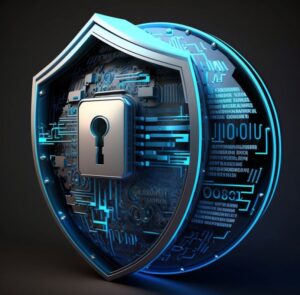Businesses in all sectors, but particularly those in the accounting sector, now consider cybersecurity to be a must-have practice. Hackers are aware that insecure systems that carry crucial financial information might be simple targets as the number of cyberattacks rises.
Accounting cybersecurity procedures make sure that your company secures sensitive information, not just for the sake of compliance but also for the security of your clients who have trusted you with their financial, personal, and professional data.
What is the big deal?
Almost 160,000 documented attacks were made in 2017 alone, nearly twice as many as in 2016. Given the increased use of IP-related technology and an ever-increasing online presence, it is only natural that cybercrime will increase.
Globally, cybercrime costs businesses billions of dollars. Cybercrime cost an astounding $600 billion (yes, $600 billion) in losses last year, and with comparable, if not higher figures anticipated today, the threat of cyberattacks is one we simply cannot ignore.
The average cost to SMEs is up to ₱500,000 – ₱10,000,000 per attack, according to the Institute of Directors, devastating businesses all over the world every year.
There is one thing that all of us have in common, regardless of whether we run a multibillion-dollar corporation or a small or medium-sized business: we are all vulnerable, and it’s only a matter of when an attack happens,
The Importance of Preemptive Cybersecurity in every Company
The dangers of ignoring cybersecurity vulnerabilities in accounting are serious. Accounting firms run the risk of losing money, clients, and their reputation if they don’t have strong defenses.
A cyberattack can result in substantial downtime for organizations while systems are being held for ransom, as well as high costs for warning customers, evaluating the assault, repairing the damage, and paying for monitoring.
Digital maturity’s three steps
According to their degree of digital maturity, the study of business leaders from 750 organizations across 11 countries divides them into three different categories:
- Digital trailblazers: Only 10% of businesses have the most cutting-edge connectivity platforms, operating models, and strategies to ensure safe and reliable operations. 63% of them credit their digital-first approach with driving revenue growth.
- 52% of businesses have only a modest amount of digitization, yet they still need to develop in several digital capacity areas.
- Digital aspirants: Due to a lack of digital maturity, 38% of businesses are just in the early stages of digitalizing their operations.
Enterprises must adopt a digital-first operational model in the emerging global economy. Trust and security are essential for the competitiveness and agility of businesses looking to expand as economies open up.
Why is cybersecurity a key concern for accountants?
It is wise to commit to accounting cybersecurity to make sure that data, systems, and sensitive documents are safe and safeguarded.
The biggest cybersecurity dangers for accounting firms
There are significant cybersecurity dangers for accounting firms. Here are a few factors that contribute to the current interest in CPA firms and cybersecurity.
Vulnerability
Although no company can be 100% secure online, cybersecurity for accounting companies is a potent deterrent. The sophistication of hackers is rising, and there has been a huge increase in cyber mishaps. In 2020, the FBI’s Internet Crime Complaint Center (ICCC) said that it received daily reports of between 3,000 and 4,000 cyberattacks.
The COVID-19 outbreak and economic crisis have only made matters worse as companies and their staff members scramble for information and end up falling for false promises.
Customer Risk
The security of the data that clients entrust to accounting companies must be ensured. Accounting firms possess some of the most crucial data for people and corporations, including financial information and Social Security numbers.
The ramifications for businesses failing to preserve this information are severe. This information must be protected at all costs by accounting firms.
Financial Risk
The financial fallout from a cyberattack is significant. The Ponemon Institute’s 2020 Cost of a Data Breach Report states that the average cost of a data breach in the US is $8.6 million. The average cost of a data breach involving personally identifiable customer information (PII) is $150 per record. Additionally, it takes an average of 280 days for most breaches to be discovered.
Ease of Hacking
While nation-states and organized criminal groups are often behind cyberattacks, a novice hacker may be responsible for a complete disruption of your company. A hacker can seriously harm your company and cause major disruptions with very little education and sophistication.
Lost Reputation
Losses from an attack on your accounting firm go far beyond financial ones. A significant reputational danger exists. Customers who are impacted are prone to talk.
The news media will learn about some situations. It can be challenging and expensive to restore some reputational losses that have been caused by a cyberattack.
It’s not only an IT issue
It’s crucial to remember that security no longer merely entails patching and defending IT systems. We are aware that it is much more ingrained in the operational environment.
One large manufacturer had to temporarily shut down production facilities, customer service, and financial services operations last June after ransomware encrypted the company’s internal networks.
The expansion of the risks that large businesses must deal with is the other trend I observe. The danger landscape is being impacted by several sociotechnical elements, including regulatory frameworks, social and political development, and culture.
Management’s inadequate communication of policies can lead to internal threats and the disclosure of sensitive information. A hacktivist group may unintentionally be inspired by the introduction of a new board policy, M&A activity, or a relationship with a supplier to deface a company website, take over social media accounts, or disrupt services through a distributed denial-of-service attack.
Inadequate data privacy policies may result in severe sanctions in some jurisdictions, but only a warning in others.
Chief information security officers (CISOs) continue to have the challenging task of conveying the continuously shifting risk picture, even though most boards are aware of the impact of security on the brand and customer trust and that CFOs are all too familiar with the costs.
Please read: Robotic Process Automation
Conclusion
The majority of people believe they are not at risk because their company does not handle a customer’s credit card information, perhaps asking themselves, “What would a hacker obtain from me? The truth is that a hacker may get so much for so little.
Even though you might not be in a business-to-consumer (B2C) operation, you almost likely interact with suppliers, partners, and customers on a business-to-business (B2B) basis, where sensitive and important information is shared. Thus, it is your responsibility as a corporation to maintain this data in secure hands, whether you manage this internally or outside.
Since there is so much at stake, security decisions must be taken in a knowledgeable, strategic, and collaborative manner. Administering cyber security programs and thwarting attackers will always involve a trade-off between expense and risk. Boards and CFOs play a crucial role in that discussion.





